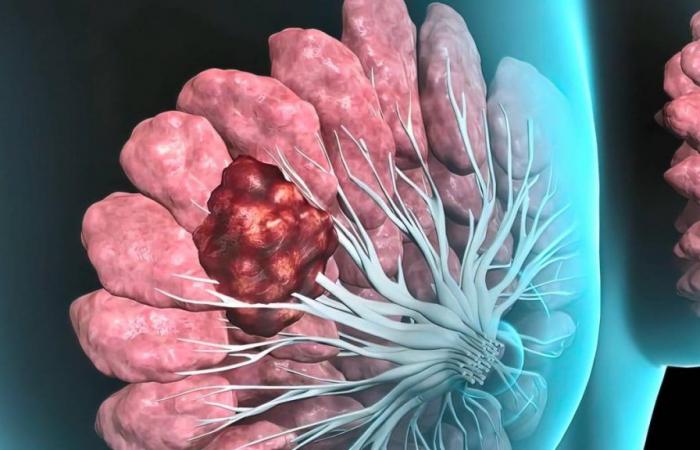
During the second day of the ‘First Ibero-American Breast Cancer Meeting’ (Eiboma), which takes place at the Luis Carlos Sarmiento Angulo Cancer Treatment and Research Center (CTIC), experts from several countries have shared their knowledge about the latest and most innovative oncological advances.
Peruvian medical oncologist Henry Gómez participated in a panel related to ER, PR and HER2/neu negative breast cancer and triple negative breast cancer. In an interview with EL TIEMPO he spoke about the research landscape in Latin America and the possible solutions to the increase in rates of this type of cancer on the continent.
How do you see the panorama of breast cancer research in Latin America?
Breast cancer research in Latin America is probably the one that has developed the most compared to other types of cancer due to the fact that this is a disease that benefits society, the family and obviously the patient. This generates pressure and incentives for researchers. However, research in Latin America is below what is carried out on other continents.
Why is the level of research so low?
Research has three basic origins: one is academia, which is mainly universities and public health systems. Another is the government generating resources to be able to do research. And a third, the most intense, is the pharmaceutical industry, which is the most powerful. But in most developed continents, research on this cancer is not linked to the pharmaceutical industry. While in Latin America, due to lack of resources, 90% of what we do is because we have support from this industry.
What aspects do we need to investigate?
We are missing a lot. Especially, in what has to be linked to Latin women. Sometimes studies of breast cancer in Latina women come from women who come from the United States. Not the Latinas who come from Latin America. And what we do is infer. This is the opposite case in Southeast Asian countries or countries of Jewish descent, which have their own studies and have a lot of information.
What do you think about this type of meeting, where many doctors from different countries come together to talk about the disease?
That is very important. Doctors who treat cancer are almost exclusively dedicated to caring for patients. And sometimes we have little time to share our experiences or share our research projects. Most opportunities arise at conferences in developed countries. When it is held in the Latin world, it is more relevant because we plan on the same thing. And we try, as far as possible, to generate convergence between countries. So the conferences in Latin America will help not only to gain knowledge and improve our management of patients on a daily basis, but also to join forces to be able to do our own research.
How do you see the panorama of breast cancer in general in Latin America?
Well, we are experiencing a stage of epidemiological transition. What does epidemiological transition mean? That women were used to having five children 50 years ago. Now they don’t have one or they have one. So this epidemiological transition is increasing the risk of breast cancer. And there are more and more young women with breast cancer. This is becoming a public health problem. The inconvenient thing is that we have to democratize the management given to patients. It cannot be that some of them have to travel very long distances to access this knowledge.
What solutions exist in this regard?
The first solution is to educate women. The second is lifestyle. There are things that can be corrected, such as being overweight or drinking. It should be noted that there are things that cannot be corrected. What we are seeing very strongly now is familial breast cancer. Currently, genetic studies are done to determine if there is a risk. If a woman has a close relative, an aunt, a cousin, a sister, then she can access the genetic test. There is another important point and it is that many times the patient’s problem is that they take a long time to get to the oncologist. That is, they go to a doctor who is not an oncologist and the diagnosis is delayed. So that is why it is very important to educate the patient about the disease.

